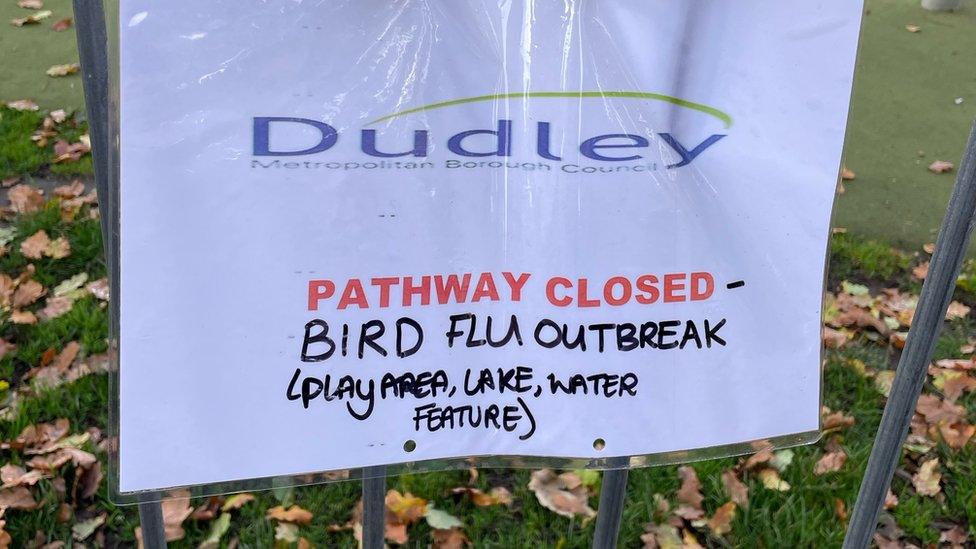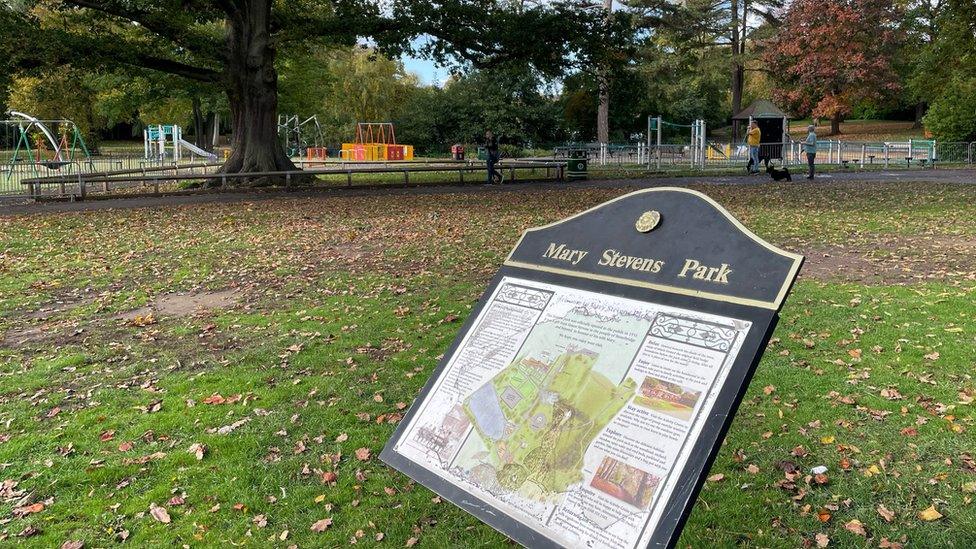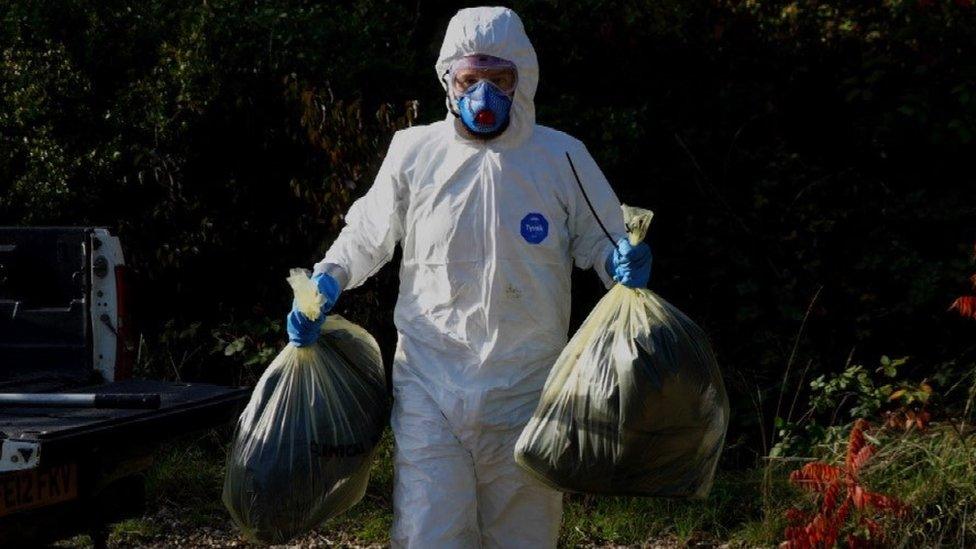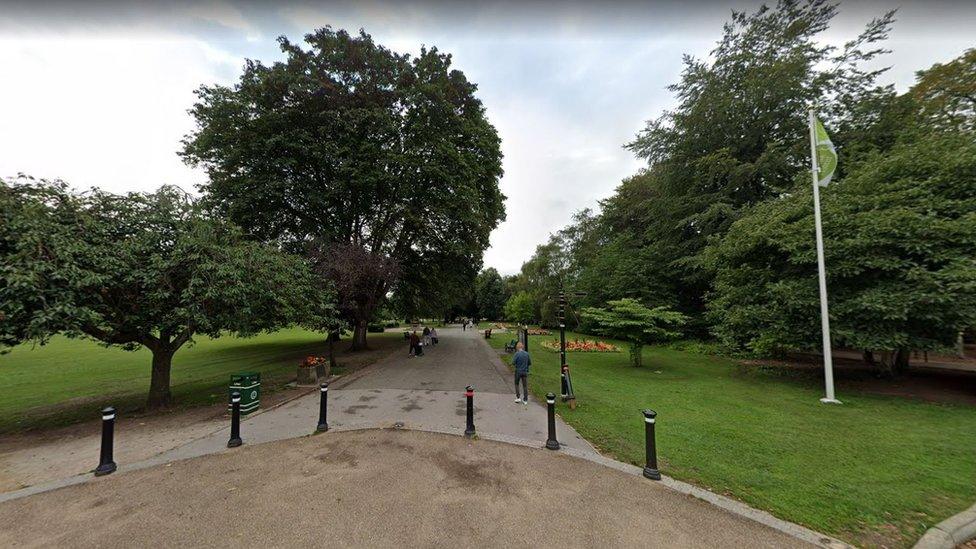Dudley: Avian flu outbreak confirmed after dead birds found
- Published

Parts of Mary Stevens Park were closed after bird flu was confirmed
Cases of avian flu in Dudley have been confirmed by the government.
Earlier this month, Mary Stevens Park in the borough was closed after wild birds were found dead.
The Department for Environment, Food and Rural Affairs (Defra) confirmed the infection had affected Dudley's wild bird population.
The Stourbridge park as well as the pool at Himley Hall have reopened, however authorities urged people not to touch dead or sick birds.
Defra said Canada geese and swans were among the wildfowl affected in a number of locations including Mary Stevens Park, Withymoor, King George VI Park Kingswinford and Himley Hall.

Wild fowl populations including swans and Canada geese have been affected
"Now avian influenza has been confirmed in the borough, and the strain we are dealing with is low risk to human health, we have revised our restrictions and will reopen areas that had been closed," said councillor Ian Bevan.
"However we will continue to review the situation."
On Monday, the government announced bird keepers in England, Scotland and Wales must implement strict biosecurity measures to stop bird flu spreading.
The outbreak is said to be the country's largest ever.
While the risk to people's health is low, it is highly pathogenic to other birds. As well as avoiding the birds, people are also advised to avoid contact with their droppings, bedding and eggs.
Anyone who finds a dead bird in Dudley has been asked to report it to the council and any sick birds ought to be reported to the RSPCA.
The UK Health Security Agency (UKHSA) said anyone who had touched the birds in Dudley in recent weeks without wearing protective equipment would "require close monitoring and follow up with UKHSA" as a precaution.

Follow BBC West Midlands on Facebook, external, Twitter, external and Instagram, external. Send your story ideas to: newsonline.westmidlands@bbc.co.uk, external
Related topics
- Published17 October 2022

- Published5 October 2022
